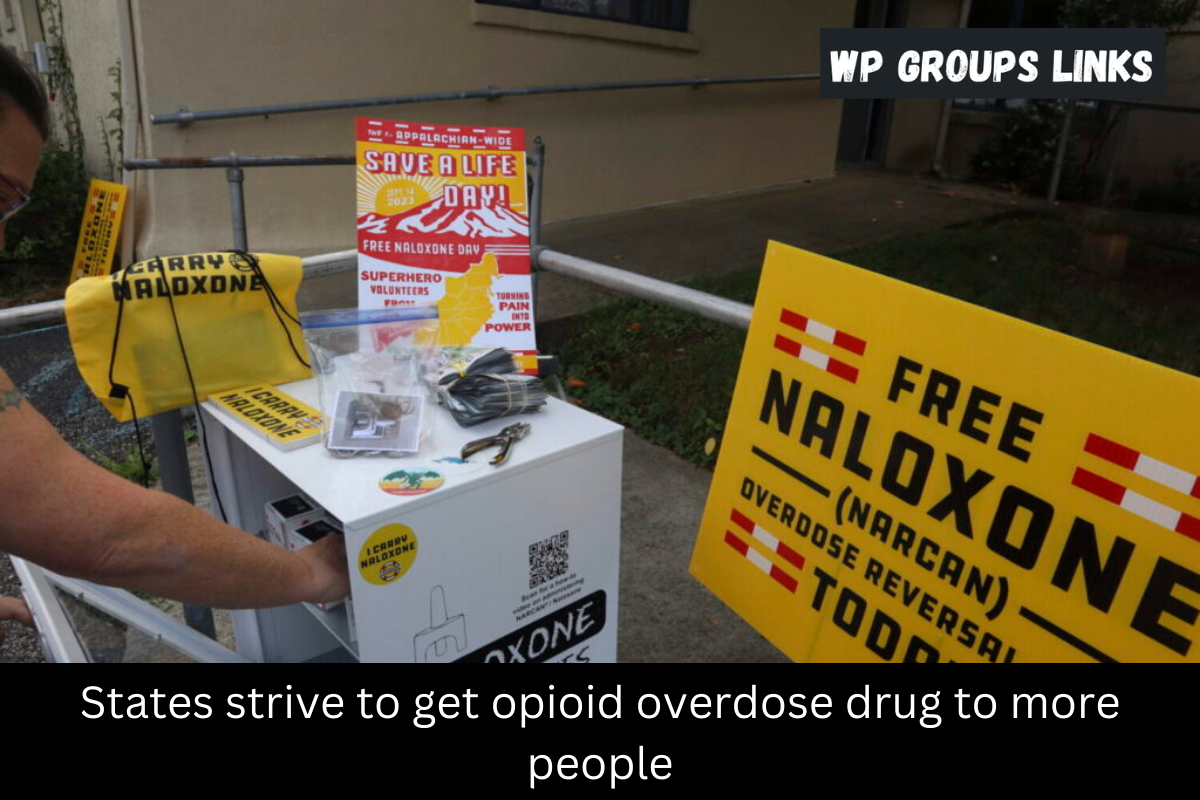Disease X is coming
In a world marked by increasing globalization and interconnectedness, the threat of infectious diseases looms larger than ever before. The COVID-19 pandemic has starkly reminded us of our vulnerability to unforeseen health crises. As experts warn of the possibility of a new, unknown pathogen – often referred to as “Disease X” – emerging in the future, it’s crucial for countries to assess their preparedness. This article delves into Ireland’s readiness for the next pandemic, scrutinizing its healthcare system, response strategies, and the lessons learned from the recent past.
As the world grapples with the ongoing COVID-19 pandemic, the specter of another potentially devastating disease outbreak lurks. The concept of “Disease X” was coined by the World Health Organization (WHO) to emphasize the possibility of an unknown pathogen causing the next pandemic. In this context, it’s essential to examine whether Ireland is adequately equipped to respond effectively to such an unforeseen health crisis.
Understanding Disease X
Disease X represents a hypothetical infectious agent that could cause serious international epidemics. The unpredictability of its nature makes preparedness a complex challenge for nations worldwide.
Ireland’s Healthcare Infrastructure
Current Strengths
Ireland boasts a robust healthcare system with a strong foundation of medical professionals and research institutions. The country’s emphasis on primary care and its universal healthcare scheme contribute to its ability to handle healthcare emergencies.
Identified Weaknesses
However, challenges such as hospital overcrowding and limited ICU capacity underscore vulnerabilities in the system. Addressing these shortcomings becomes crucial when preparing for potential pandemics.
Pandemic Preparedness and Response Plan
Government Initiatives
The Irish government has taken significant steps to enhance pandemic preparedness, including the establishment of a National Public Health Emergency Team (NPHET). This team plays a pivotal role in coordinating responses to infectious disease outbreaks.
Collaborative Efforts
Collaboration between governmental bodies, healthcare institutions, and international organizations ensures a holistic approach to pandemic preparedness.
Learning from COVID-19
Lessons in Crisis Management
The COVID-19 pandemic revealed the importance of swift and decisive action in curbing the spread of a novel virus. Ireland’s response to COVID-19 offers valuable insights into managing future outbreaks.
Vaccine Distribution Challenges
The challenges faced in distributing vaccines during the COVID-19 pandemic shed light on the need for meticulous logistical planning to ensure equitable vaccine access.
Community Engagement and Information Dissemination
Importance of Public Awareness
Raising public awareness about Disease X and preventive measures is crucial for effective containment.
Effective Communication Strategies
Clear and transparent communication from health authorities helps combat misinformation and fosters trust among the population.
International Cooperation
Global Health Partnerships
Ireland’s participation in global health partnerships facilitates the exchange of knowledge and resources, enhancing its preparedness for cross-border health threats.
Sharing Best Practices
Collaborating with other countries allows Ireland to learn from successful pandemic management strategies implemented elsewhere.
Balancing Healthcare and Socioeconomic Impact
Economic Resilience
Finding a balance between health measures and economic stability is paramount, as the pandemic’s socioeconomic impact can exacerbate health disparities.
Protecting Vulnerable Populations
Safeguarding vulnerable populations, such as the elderly and immunocompromised, must remain a central focus of pandemic preparedness.
Harnessing Technological Innovations
Telemedicine Advancements
Technological advancements in telemedicine enable remote healthcare delivery, reducing the strain on physical healthcare facilities.
Data Analytics for Early Detection
Utilizing data analytics and AI can facilitate early detection of disease outbreaks, enabling rapid responses.
Simulating Outbreaks and Response Scenarios
Preparedness Drills
Regular simulation exercises help identify gaps in response plans and allow healthcare workers to practice their roles.
Identifying Bottlenecks
Simulations highlight potential bottlenecks in supply chains, enabling proactive measures to address them.
Investing in Research and Development
Antiviral Medications
Investments in antiviral drug research contribute to a robust pharmaceutical arsenal against future pandemics.
Next-Generation Vaccines
Developing innovative vaccine technologies ensures rapid vaccine development in the face of emerging pathogens.
Governmental and Public Accountability
Transparent Decision-Making
Transparent and accountable decision-making enhances public trust and ensures a coordinated response.
Ensuring Continuous Improvement
Regular reviews of pandemic response strategies allow for ongoing improvements and refinements.
Challenges in Vaccine Manufacturing and Distribution
Strengthening Domestic Production
Enhancing domestic vaccine manufacturing capacity reduces dependency on external suppliers.
Ensuring Equitable Access
Efforts to ensure fair distribution of vaccines among different demographic groups are imperative.
Building a Resilient Healthcare Workforce
In the realm of healthcare, the strength and resilience of the workforce are paramount. A robust healthcare workforce is the backbone of a nation’s ability to respond effectively to pandemics and other health emergencies. As we consider Ireland’s readiness for the next pandemic and the looming threat of Disease X, the focus on building a resilient healthcare workforce becomes even more critical.
Training and Skill Enhancement
Continuous training and skill enhancement are cornerstones of ensuring that healthcare professionals are equipped to handle the challenges posed by novel pathogens. The dynamic nature of healthcare demands that professionals stay up-to-date with the latest medical advancements, treatment protocols, and infection control measures. Regular training sessions and workshops help healthcare workers refine their skills, learn new techniques, and become proficient in using cutting-edge technologies.
Adapting to Emerging Challenges
The rapid emergence of Disease X or any other novel infectious disease requires healthcare workers to adapt swiftly. Cross-training across different medical specialties can play a pivotal role in ensuring that professionals can seamlessly transition to areas facing a surge in patient numbers. The ability to provide versatile care enhances the workforce’s ability to meet the demands of unforeseen health crises.
Mental Health Support
The toll of dealing with a pandemic extends beyond physical health. Healthcare professionals often face immense psychological and emotional challenges while working in high-pressure environments. Providing robust mental health support is crucial to prevent burnout, reduce stress, and ensure the well-being of the workforce.
Creating Safe Spaces for Expression
Establishing safe spaces for healthcare workers to express their concerns, fears, and anxieties can go a long way in promoting mental wellness. This can be achieved through regular debriefing sessions, counseling services, and peer support groups.
Recognizing and Addressing Burnout
Long working hours, emotionally taxing situations, and the constant exposure to suffering can contribute to burnout among healthcare professionals. Organizations should actively monitor signs of burnout and implement measures such as flexible work schedules, stress management programs, and opportunities for respite.
Collaborative Learning and Knowledge Sharing
The strength of a healthcare workforce lies not only in individual skills but also in collective knowledge. Facilitating collaborative learning and knowledge sharing enhances the capacity of healthcare professionals to respond effectively to the challenges posed by Disease X or any other pandemic.
Multidisciplinary Teams
Creating multidisciplinary teams that comprise professionals from diverse medical backgrounds fosters the exchange of insights and expertise. This interdisciplinary approach ensures comprehensive patient care and promotes innovative problem-solving.
Learning from Past Experiences
Encouraging healthcare workers to share their experiences and lessons learned from past pandemics can help in refining response strategies. Documenting best practices and areas that need improvement contributes to continuous learning and improvement.
Embracing Technological Advancements
The integration of technology into healthcare practices has transformed the way medical professionals operate. Leveraging technological advancements can significantly enhance the resilience of the healthcare workforce.
Telemedicine and Remote Consultations
Telemedicine enables healthcare professionals to provide consultations and monitor patients remotely. This not only minimizes physical contact during pandemics but also allows professionals to attend to patients without being physically present at the healthcare facility.
Data Analytics for Informed Decision-Making
Utilizing data analytics and artificial intelligence can aid in predicting disease trends, resource allocation, and early detection of outbreaks. These insights empower healthcare workers to make informed decisions swiftly.
In the face of the uncertainties posed by Disease X and other potential pandemics, building a resilient healthcare workforce is a foundational step in ensuring a nation’s preparedness. Through continuous training, mental health support, collaborative learning, and the incorporation of technology, healthcare professionals can stand ready to confront any health emergency with strength, adaptability, and compassion.



